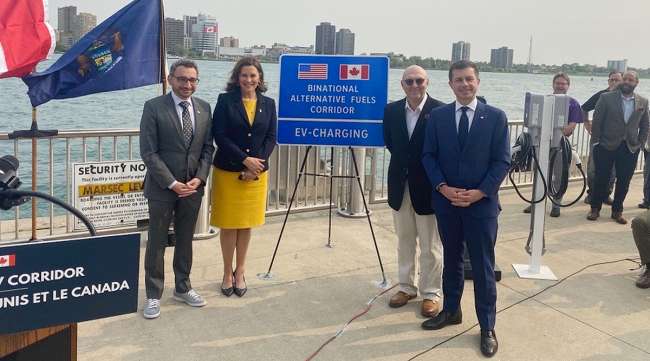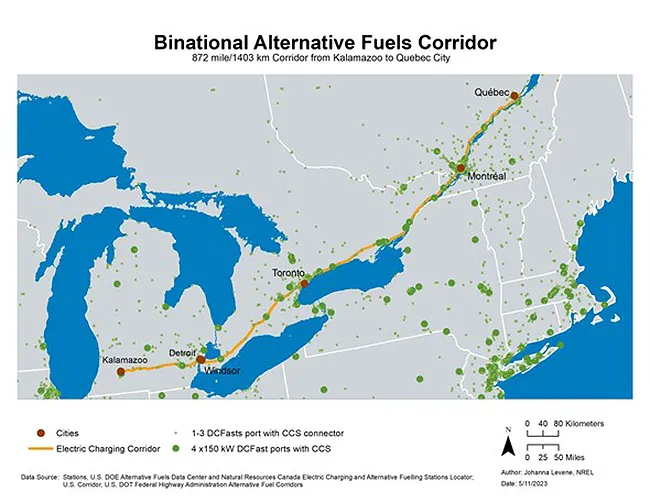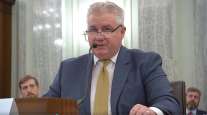US, Canada Plan First Cross-Border Electric Vehicle Corridor

[Stay on top of transportation news: Get TTNews in your inbox.]
OTTAWA — The U.S. and Canada announced the creation of the Binational Electric Vehicle Corridor, an 872-mile route that will stretch from Kalamazoo, Mich., to Quebec City, Quebec, and feature fast chargers every 50 miles.
On May 16, U.S. Transportation Secretary Pete Buttigieg joined Canadian Transport Minister Omar Alghabra, Michigan Gov. Gretchen Whitmer, Detroit Mayor Mike Duggan and union member Bill Baisden to celebrate the continued collaboration between the U.S. and Canada to lead the world in electric vehicle jobs, manufacturing and supply chains.
BUTTIGIEG ON TT NEWSMAKERS: Watch May 9 talk on infrastructure, more
The new corridor will tap into the 75,000-plus miles of Alternative Fuel Corridors in the United States. This refers to the national network of plug-in EV charging and hydrogen, propane and natural gas fueling infrastructure along national highways. The new corridor will feature EV fast chargers approximately every 50 miles.
During his visit to Canada in March, President Joe Biden and Canadian Prime Minister Justin Trudeau committed to work together to harmonize EV charging standards and develop cross-border Alternative Fuel Corridors between the two countries. It helped further strengthen the world’s largest market-based energy trading relationship.
“The U.S. and Canada have long enjoyed a productive partnership on transportation issues and in that spirit we are proud to announce the first-ever U.S.-Canada EV Corridor,” said Buttigieg.

City of Detroit
“With historic investments in EV infrastructure from the Biden-Harris administration and the Canadian government, we are creating a new generation of good-paying manufacturing jobs, making it possible for drivers everywhere to reap the benefits and savings of these vehicles while helping us fight climate change,” he added.
“Canada and the United States have built the world’s largest market-based energy trading relationship, which provides a firm foundation as we strive to reach net-zero greenhouse gas emissions,” said Transport Minister Alghabra.
“This first cross-border alternative fuel corridor will help drivers to travel across the border and charge or refuel worry-free. It contributes to bringing us another step closer to making our air cleaner while helping people save money on traditional fuels,” he added.
The first-ever U.S.-Canada EV corridor will enable drivers to charge their vehicles all the way from Kalamazoo to Quebec City. Making, installing, and maintaining those chargers and vehicles will create a lot of good, union jobs. @POTUS promised this and now we're delivering. pic.twitter.com/VmAE1w5IBq — Secretary Pete Buttigieg (@SecretaryPete) May 17, 2023
The Biden administration has set a goal of having 50% of all new vehicle sales in the U.S. be electric by 2030. In Canada, one in 10 new vehicles purchased is already a zero-emission vehicle.
Not only does the Binational EV Corridor facilitate the movement of passengers and goods through this key economic binational corridor, it also helps Canada achieve net-zero greenhouse gas emissions by 2050.
Want more news? Listen to today's daily briefing below or go here for more info:
Distributed by Tribune Content Agency, LLC




